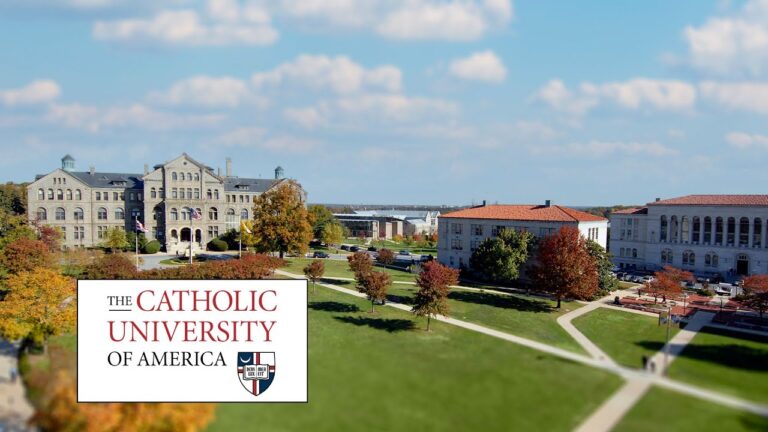Understanding the Concept of God the Mother
In a world where spiritual beliefs continue to evolve, the concept of God the Mother has emerged as a profound and compelling topic of discussion. Many are intrigued by this notion, which suggests a divine feminine presence alongside the traditional understanding of God. Who is God the Mother, and what does this figure represent in various religious and cultural contexts? This exploration delves into the significance, interpretations, and impact of this concept, inviting readers to reconsider their perceptions of divinity and the roles of gender in spirituality.
Who is God the Mother in theology?
God the Mother refers to a conceptual figure representing the nurturing and maternal aspects of God, often associated with divine femininity in various theological interpretations.
Who is our divine mother?
Our heavenly mother is often regarded as a symbol of nurturing and unconditional love, embodying the essence of compassion and guidance in our spiritual journey. In many traditions, she is seen as a divine figure who supports and uplifts us, offering wisdom and solace in times of need. Her presence serves as a reminder of the connection we share with the divine and the importance of embracing love and kindness in our lives. As we seek understanding and strength, our heavenly mother inspires us to cultivate these qualities within ourselves and in our relationships with others.
Who is referred to as the mother of God?
The title “Mother of God,” or Theotokos, holds a significant place in Christian theology, particularly in understanding the nature of Jesus Christ. This designation for Mary was officially affirmed during the First Council of Ephesus in 431 AD, a pivotal moment in the development of Christian doctrine. The council gathered to address various theological disputes, and through its deliberations, it established the essential belief that Mary gave birth to Jesus, who is both fully divine and fully human.
The affirmation of Mary as the Mother of God underscores the profound mystery of the Incarnation, where God took on human flesh through her. This belief emphasizes the unity of Christ’s dual nature—His divinity and humanity—making Mary an integral figure in the narrative of salvation. The title is not only a recognition of her role but also serves to honor her unique relationship with Jesus, who is revered as the Savior in Christian faith.
Throughout history, the title has inspired countless devotions, art, and theological reflections, highlighting Mary’s importance in both Eastern and Western Christianity. By calling her the Mother of God, believers acknowledge her pivotal role in the story of redemption and the profound impact of her faith and obedience. This title continues to resonate in the hearts of many, serving as a reminder of the divine mystery that began with her consent to bear the Son of God.
Who is the mother of all gods?
Aditi holds a revered position in ancient Indian texts, often recognized as the mother of all gods. As the divine progenitor, she is particularly noted as the mother of Indra, the king of the gods, and is celebrated for her role in nurturing celestial beings. Her significance extends beyond individual deities, as she embodies the very essence of creation and the nurturing force of the universe.
In the Vedas, Aditi is referred to as Devamata, emphasizing her status as the mother of the celestial gods. Her cosmic matrix is described as the source from which all heavenly bodies emerge, highlighting her integral role in the fabric of existence. This portrayal underscores the belief that she is the origin of light, life, and order in the cosmos, establishing her as a figure of profound importance in ancient mythology.
Aditi’s influence is not confined to mythology alone; she symbolizes the nurturing and protective aspects of the divine. As the embodiment of motherhood and cosmic unity, she inspires reverence and respect in various traditions. Her legacy as the mother of gods serves as a reminder of the interconnectedness of all beings and the nurturing power that sustains life throughout the universe.
Exploring Divine Femininity in Spirituality
Divine femininity represents a powerful and nurturing aspect of spirituality that resonates deeply with the essence of creation and intuition. It embodies qualities such as compassion, receptivity, and wisdom, encouraging individuals to embrace their inner strength and vulnerability. By exploring divine femininity, one can cultivate a deeper connection to the sacred energies that flow through all beings, fostering a sense of balance and harmony within oneself and the world. This journey invites us to honor the feminine aspects of the divine, celebrate the beauty of life, and inspire transformative growth through love and understanding.
Unveiling the Nurturing Aspect of the Divine
Throughout history, the concept of the divine has often been intertwined with notions of love, compassion, and nurturing. Many spiritual traditions emphasize a protective force that guides humanity through challenges, offering solace and support in times of need. This nurturing aspect of the divine serves as a reminder that we are not alone in our struggles; instead, we are embraced by an infinite source of love that encourages growth and healing. By recognizing this divine presence, individuals can cultivate a deeper sense of connection to themselves and the world around them.
In embracing the nurturing qualities of the divine, we can foster resilience and hope within our lives. This connection inspires us to extend the same compassion we receive to others, creating a ripple effect of kindness and understanding. As we acknowledge the divine’s role in our personal journeys, we empower ourselves to transform our experiences into opportunities for learning and connection. Ultimately, this profound understanding of the divine nurturer invites us to celebrate our shared humanity and the sacred threads that bind us all.
The Role of God the Mother in Modern Faith
In contemporary spiritual discourse, the concept of God the Mother emerges as a transformative force that redefines traditional notions of divinity. Advocates highlight her nurturing qualities, emphasizing compassion, comfort, and unconditional love, which resonate deeply with the struggles faced by individuals in today’s world. This maternal aspect of God offers a fresh perspective that encourages believers to embrace vulnerability and foster deeper connections within their communities, ultimately promoting healing and unity.
As faith evolves, the recognition of God the Mother invites a more inclusive understanding of spirituality that transcends gendered interpretations of the divine. By embracing this duality, many find a richer, more holistic experience of faith that honors both masculine and feminine attributes of God. This shift not only empowers individuals in their spiritual journeys but also paves the way for more equitable discussions about the nature of divinity, encouraging a broader acceptance of diverse beliefs and practices in an increasingly pluralistic society.
The exploration of the concept of God the Mother invites a deeper understanding of the divine and its multifaceted nature. As discussions around spirituality evolve, recognizing the nurturing and compassionate aspects attributed to the feminine divine can enrich personal beliefs and foster a sense of inclusivity within religious communities. Embracing this perspective not only challenges traditional views but also encourages a broader dialogue about the roles and representations of God in our lives, ultimately leading to a more holistic appreciation of faith.






